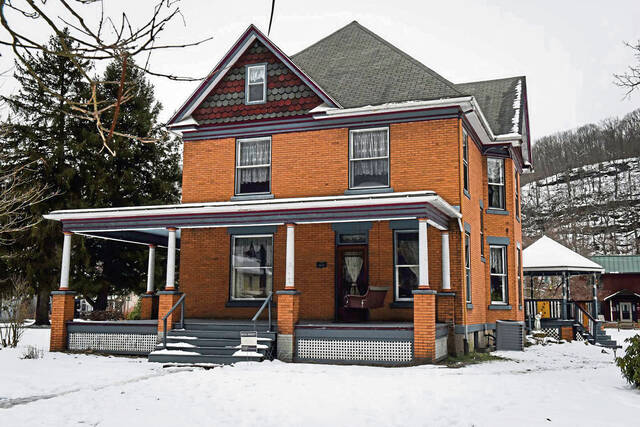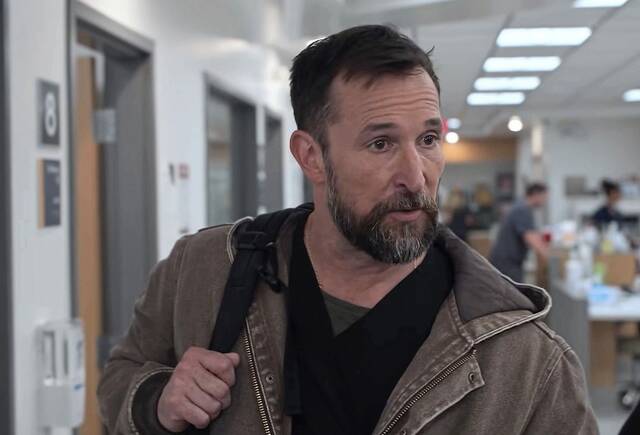About 20 years since its inception, and three years since its last funding boost, the Pennsylvania film tax credit is ready for a close-up, according to industry experts.
The timing might not get any better, they said.
Wildfires in Southern California, industry strikes and disruptions from the covid-19 pandemic have left Hollywood reeling, according to a recent report by the Los Angeles Times. Pennsylvania, including Pittsburgh and the surrounding area, would benefit by pumping more into its 2-decades-old film tax credit program and investing in industry infrastructure.
“We have not stayed competitive with the nearby surrounding states,” said Dawn Keezer, executive director of the Pittsburgh Film Office. She is one of the loudest voices in the effort to expand incentives for filming here.
“People get excited about the glitz and the glamour,” she said. “What we get excited about are the jobs and the economic impact happening in the region.”
About the tax credit
Approved by the state Legislature in 2004, the film tax credit went into effect in 2007 under Gov. Ed Rendell to attract more productions to the state. It currently sits at a $100 million-a-year cap, despite lobbying from local professionals to budget more money — ideally tripling the annual cap to $300 million. Gov. Josh Shapiro’s budget proposal maintains the $100 million figure for the 2025-26 fiscal year.
At the time of the tax credit’s initiation, Pennsylvania was one of only three states to offer such a benefit. Today, 38 states, in addition to several cities and municipal regions, have gotten on board with offering fiscal incentives to Hollywood. Without the proper financial backing, though, Pennsylvania’s tax credit could get lost in the shuffle, advocates say.
The program’s annual cap has waxed and waned over the years. For example, in 2009, the cap shrunk from $75 million to $42 million, then went up to $60 million in 2010. It was upped to $65 million in 2016. The $100 million cap has been in place since 2022.
The tax credit is applicable for any project that spends 60% or more of its total expenses in Pennsylvania. Applicable projects include film, TV shows and commercials intended for a national audience.
“Everyone who works in film will tell you Pennsylvania has a robust tax credit,” said Lisa Smith-Reed, a working union production coordinator in Pittsburgh. Then she added, “It’s not robust enough.”
Despite ubiquitous incentives offered by states, a number of productions are moving overseas or to Canada. Canada is attractive because it has federal tax incentives as well as provincial ones, which can often mean double the savings for a film shoot.
Funding for a similar federal incentive in the U.S. was gaining steam until the Sept. 11, 2001, terrorist attacks, Keezer said. The matter hasn’t been addressed seriously since, she said.
Industry publication ProdPro reported in its 2025 TV and film outlook the location hubs that studios are budgeting for this year. None of the top five regions was in the United States. Toronto, the United Kingdom, Vancouver, Central Europe and Australia all made the cut.
Other locations vying for starring roles
Competition for film dollars is fierce. Take the CBS medical mystery series “Watson,” for instance.
An opening and closing scene from the trailer highlights aerial shots of Pittsburgh’s three sisters bridges on the North Shore. The show is the brainchild of Western Pennsylvania native Craig Sweeny, yet the majority of filming takes place in Vancouver, Canada.
“It was written by Craig Sweeny, who’s from Pittsburgh, and it’s a love letter to Pittsburgh. He wanted to film in Pittsburgh, and it’s a $16 million difference between here and filming in Vancouver, Canada,” Keezer said.
So instead of calling Pittsburgh its home base, the production came to town for several days to shoot establishing shots while taking the rest of production elsewhere.
But it’s not just Canada.
Georgia and New Jersey are two of the biggest success stories in the U.S. Both have successfully leveraged tax incentives to draw interest from Hollywood productions.
In July 2024, New Jersey expanded its program, increasing its cap to $430 million annually.
Georgia is the brightest new star. It has no limit on the number of credits that can be issued each year, and its tax credit program has exceeded $1 billion. It also has attracted notable productions, including Marvel Studios movies and blockbuster series such as “Stranger Things” and “The Walking Dead.”
West Virginia has no cap on its tax credit program, which was reinstated in 2022. Ever since, the state has seen an increase in the number of productions, including two Super Bowl commercials, according to David Lavender of the West Virginia Film Office.
“The tax credit makes everybody take a look,” he said. “Not everybody takes the tax credit, but we’ve had two dozen companies take the tax credit in two fiscal years. Additionally, this last year we’ve helped with over 100 productions.”
Competition for shows
Pennsylvania had a record 50 active film productions in fiscal year 2023-24, but the broader industry strikes in 2023 changed the production landscape.
Since then — much like in Los Angeles — the tide in Pittsburgh has turned.
“For the last two years, it’s been a little leaner than we’re used to,” said Mamie Stein, president of IATSE Local 489, an industry union chapter in Southwestern Pennsylvania.
“Most of us had an unbelievable year in 2022-23,” said Katie Shenot, a casting director at Pittsburgh-based Mosser Casting. “There was so much content we made. We were working pretty much nonstop. And then it just came to a grinding halt after the strikes.”
The only major project currently filming in Southwestern Pennsylvania is “Mayor of Kingstown,” a Jeremy Renner-led Paramount+ crime drama. Keezer is excited and grateful for the series’ return to Pittsburgh for its fourth season.
The Pennsylvania Film Office recently allocated a $30 million tax credit to “Mayor of Kingstown.” MyChesCo reported the production has added 2,600 jobs and provided $100 million in economic stimulation to the Pittsburgh region.
“There’s over 5,000 people who work in this industry in this region,” Keezer said. “There’s all these businesses that rely on this industry.”
Stein said IATSE Local 489 is capable of crewing four projects at once in Southwestern Pennsylvania, but that number is in danger of dropping to three because professionals are finding it difficult to make a full-time living in the current conditions.
Is Pittsburgh the future of film?
If the money is there, everyone seems to agree the Pittsburgh region can be competitive. Between personnel, technology and an eye-catching landscape, the region is ideal for filming and production.
“The wind is definitely shifting,” Stein said. “Pennsylvania needs to be prepared.”
The big “if” is whether studios can keep costs low.
While many lament Southwestern Pennsylvania’s steely skies, filmmakers love the gray because of how well it shows up on camera. And the region is a fantastic chameleon on film — Stein has seen settings from Chicago to Iraq shot here.
The city’s position as a technology hub could provide a positive outlook for the future of post-production, Keezer said.
“If you look at all of the things that are happening here already, like all the stuff we’re doing with AI, all the stuff we’re doing with robots, we have a way to make a case right now that puts us at the forefront of why people should come here,” she said.
The one thing that’s missing is an up-to-date, ready-made studio space.
“What we do have are refurbished warehouses, which, while they’re serviceable, come with their own complications because they weren’t intentionally built spaces for production,” Smith-Reed said.
Smith-Reed thinks that if the region can get several smaller-budget movies — for example, 2024’s “Drive Away Dolls,” directed by Ethan Coen — it would go a long way in helping Pittsburgh become competitive against areas like Cleveland, Kentucky and upstate New York.
“At the end of the day, the tax credit is the most important conversation,” Stein said. “We shouldn’t ever be turning things away because we don’t have space for them. We’ve had some really cool projects that we’ve been looking forward to that they go elsewhere.”
Still, she said, “I’m optimistic about the industry.”
Added Lavender, “Our whole region is becoming a little bit of a hot spot for film.”












